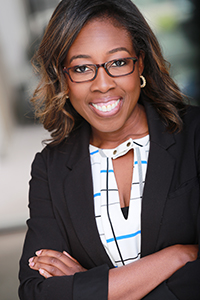
I am a Thoracic Surgeon and Health Equity Researcher.
Loretta Erhunmwunsee, MD
Beckman Research Institute of City of Hope
Dr. Erhunmwunsee is a board-certified cardiothoracic surgeon and health equity researcher at the City of Hope Comprehensive Cancer Center (COHCCC). She is passionate about illuminating the pathways by which structural racism influences cancer outcomes and leading mitigation strategies to achieve health equity. Her interest in health disparities started while a surgical resident looking to understand why African Americans had significantly worse cancer outcomes. She has since created a research program that clarifies how socioenvironmental context contributes to poor cancer outcomes in marginalized communities. Specifically, her research program has centered on investigating the impact that adverse multilevel social determinants of health (SDOH) and structural racism have on lung cancer risk, biology, and screening behaviors. Her work has revealed links between neighborhood SDOH (i.e., air pollution, neighborhood deprivation and residential segregation) and frequency of aggressive non-small cell lung cancer (NSCLC) biology as well as increased NSCLC risk in African Americans. Her R37 is focused on exploring the impact of structural racism on lung cancer mutational signatures and cancer outcomes of African Americans and has the potential to define the biological impact of adverse social context. She also has recruited large numbers of marginalized groups in cancer research trials in partnership with local Federally Qualified Health Centers (FQHC) and community clinics to create lung cancer screening (LCS) programs that measure multilevel SDOH and utilize navigation to support marginalized communities through their journey.
| Project Title | Grant Number | Program Director | Publication(s) |
|---|---|---|---|
| Examining the Impact of Structural Racism on African American Non-Small Cell Lung Cancer Mutational Signatures and Outcomes |
1R37CA284040-01A1 |
Behnoosh Momin |
To request edits to this profile, please contact Mark Alexander at alexandm@mail.nih.gov.

